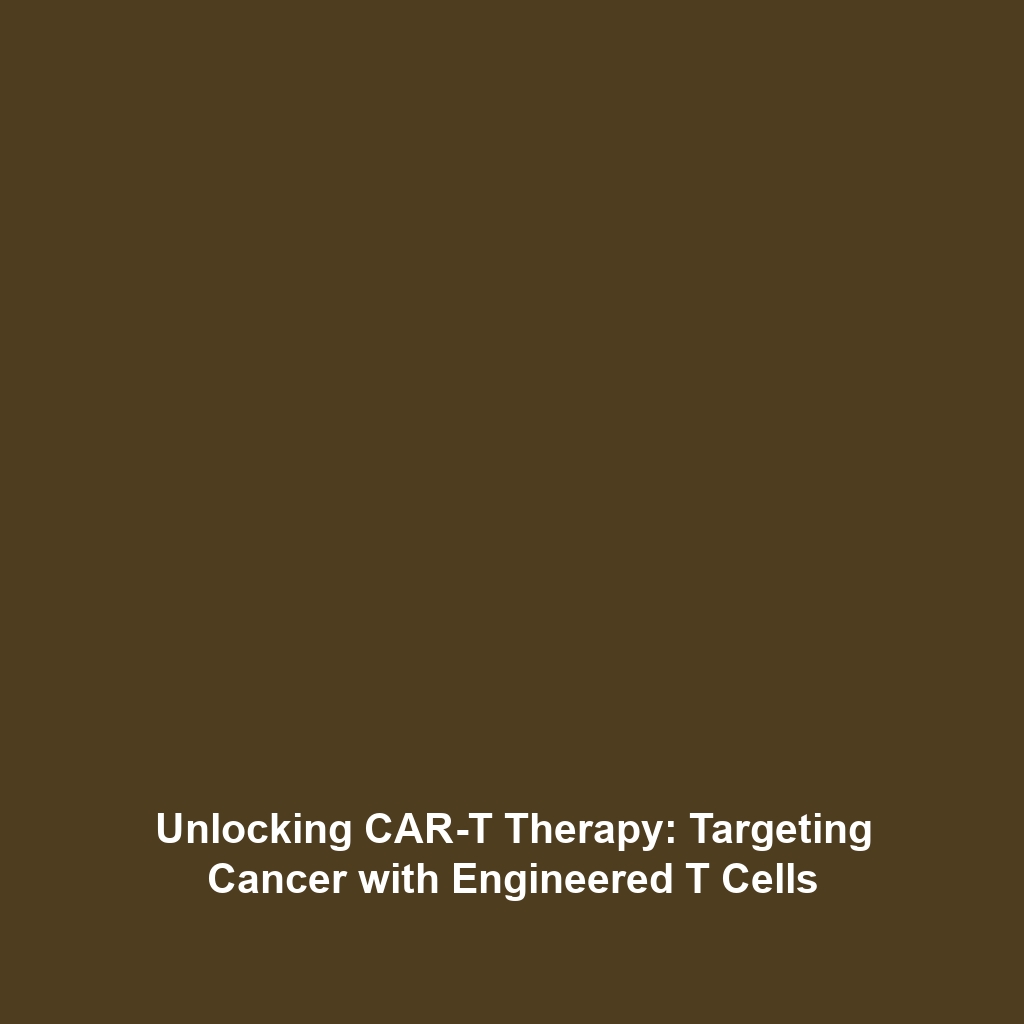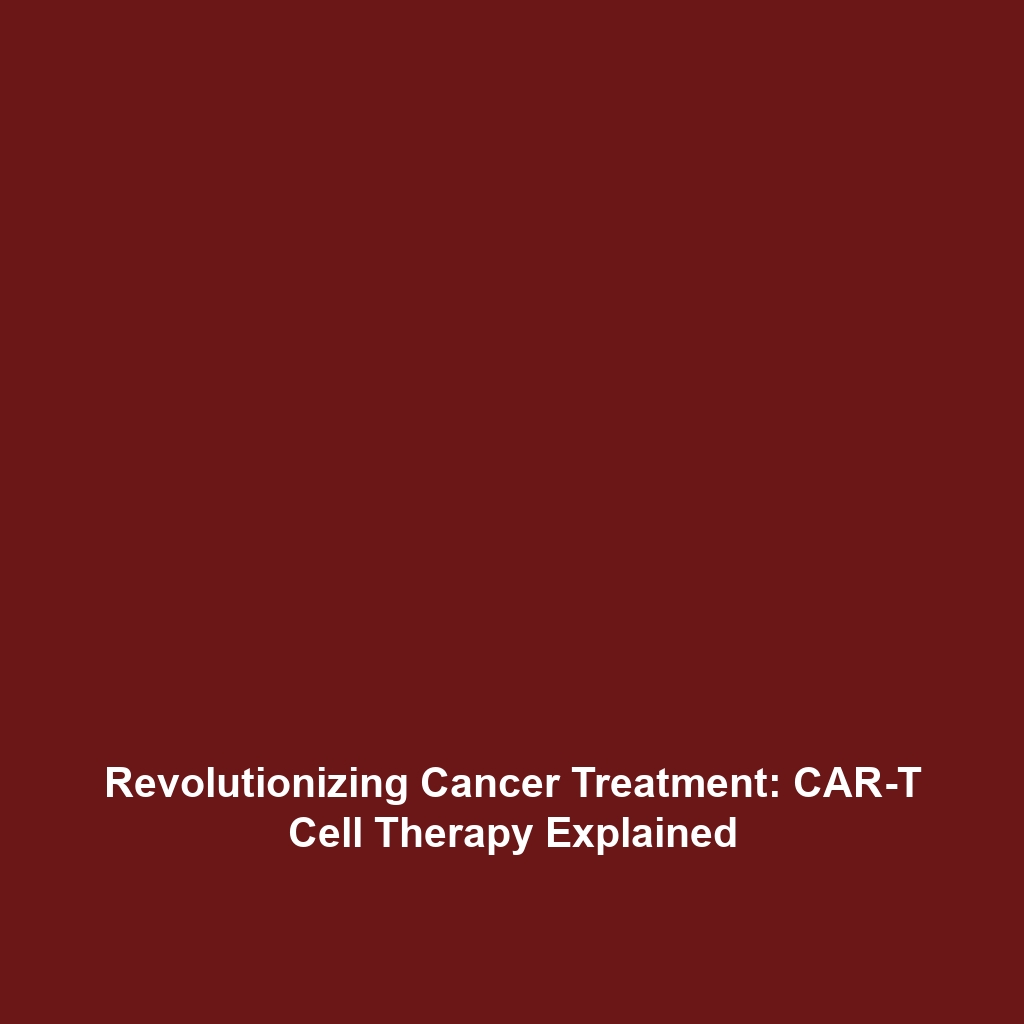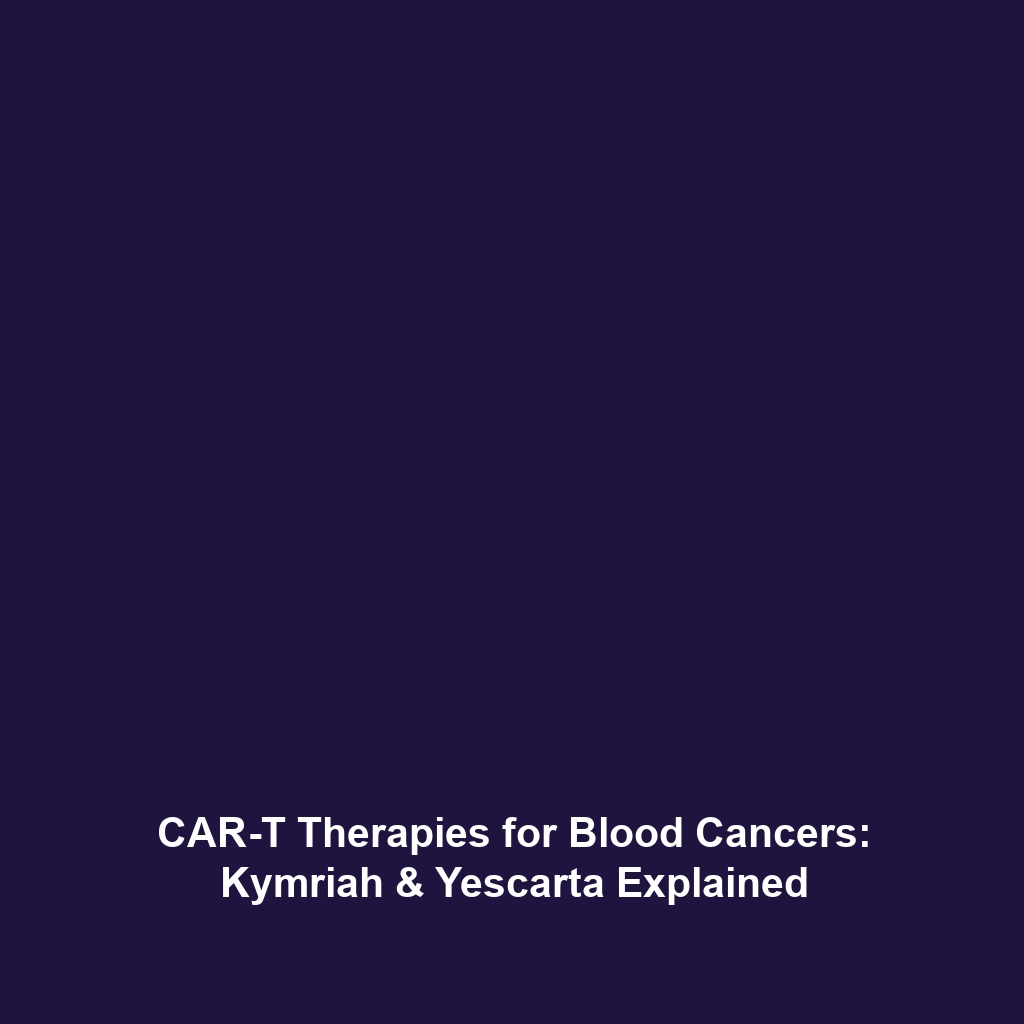How Immunotherapies Like CAR-T and Monoclonal Antibodies Target These Antigens
Introduction: Immunotherapies represent a groundbreaking approach in the fight against cancer, leveraging the body’s immune system to identify and eliminate malignant cells. Among these advancements, CAR-T (Chimeric Antigen Receptor T-cell) therapy and monoclonal antibodies have emerged as pivotal strategies targeting specific antigens present on tumor cells. By understanding how these therapies focus on cancer antigens, we gain insights into the broader landscape of immunotherapy and its transformative impact on cancer treatment. This article explores the mechanisms by which CAR-T and monoclonal antibodies operate, highlighting their significance in the realm of Immunotherapy & Cancer.
Key Concepts in Immunotherapy
Immunotherapies, particularly CAR-T and monoclonal antibodies, are rooted in the following key principles:
- Targeting Antigens: CAR-T cells are genetically engineered to express specific receptors that recognize cancer-associated antigens, enabling them to attack tumor cells directly.
- Monoclonal Antibody Technology: Monoclonal antibodies are designed to bind selectively to specific antigens found on cancer cells, marking them for destruction by the immune system.
- Immune Activation: Both strategies enhance the immune system’s ability to seek and destroy cancer cells, significantly improving patient outcomes in various cancers.
Applications and Real-World Uses
Understanding how immunotherapies like CAR-T and monoclonal antibodies target these antigens is essential for recognizing their applications in clinical settings:
- Cancer Treatment: CAR-T therapy has shown remarkable success in treating blood cancers such as acute lymphoblastic leukemia (ALL) and non-Hodgkin lymphoma.
- Specificity: Monoclonal antibodies like Rituximab are widely used to treat certain lymphomas by targeting the CD20 antigen on B cells.
- Combination Therapies: Ongoing research is exploring the potential of combining CAR-T and monoclonal antibody therapies to enhance treatment efficacy across different tumor types.
Current Challenges
The path to deploying CAR-T and monoclonal antibodies for cancer treatment presents several challenges:
- Cost and Accessibility: High costs associated with manufacturing and administering CAR-T therapies can limit access for many patients.
- Adverse Effects: Potential severe side effects, including cytokine release syndrome (CRS) in CAR-T patients, pose significant risks.
- Tumor Heterogeneity: Variability in antigen expression across different tumors can reduce the effectiveness of these therapies.
Future Research and Innovations
Looking ahead, several innovations and research directions are promising for CAR-T and monoclonal antibody therapies:
- Next-Generation CAR-T Cells: Research is underway to develop multi-targeted CAR-T cells that can engage multiple antigens simultaneously to overcome resistance.
- Personalized Medicine: Advances in genomic profiling may enable more tailored therapies that fit the specific molecular characteristics of an individual’s cancer.
- Expanded Applications: Studies are exploring the use of CAR-T and monoclonal antibodies in solid tumors, which could vastly expand their utility in cancer treatment.
Conclusion
In summary, immunotherapies such as CAR-T and monoclonal antibodies represent significant advancements in the targeting of cancer antigens, playing a crucial role in the evolving landscape of Immunotherapy & Cancer. Continued research and innovation in this field not only promise improved outcomes for patients but also hold the potential to redefine treatment paradigms. For those interested in the latest in cancer research and treatment strategies, stay connected with us for ongoing updates and expert insights.



